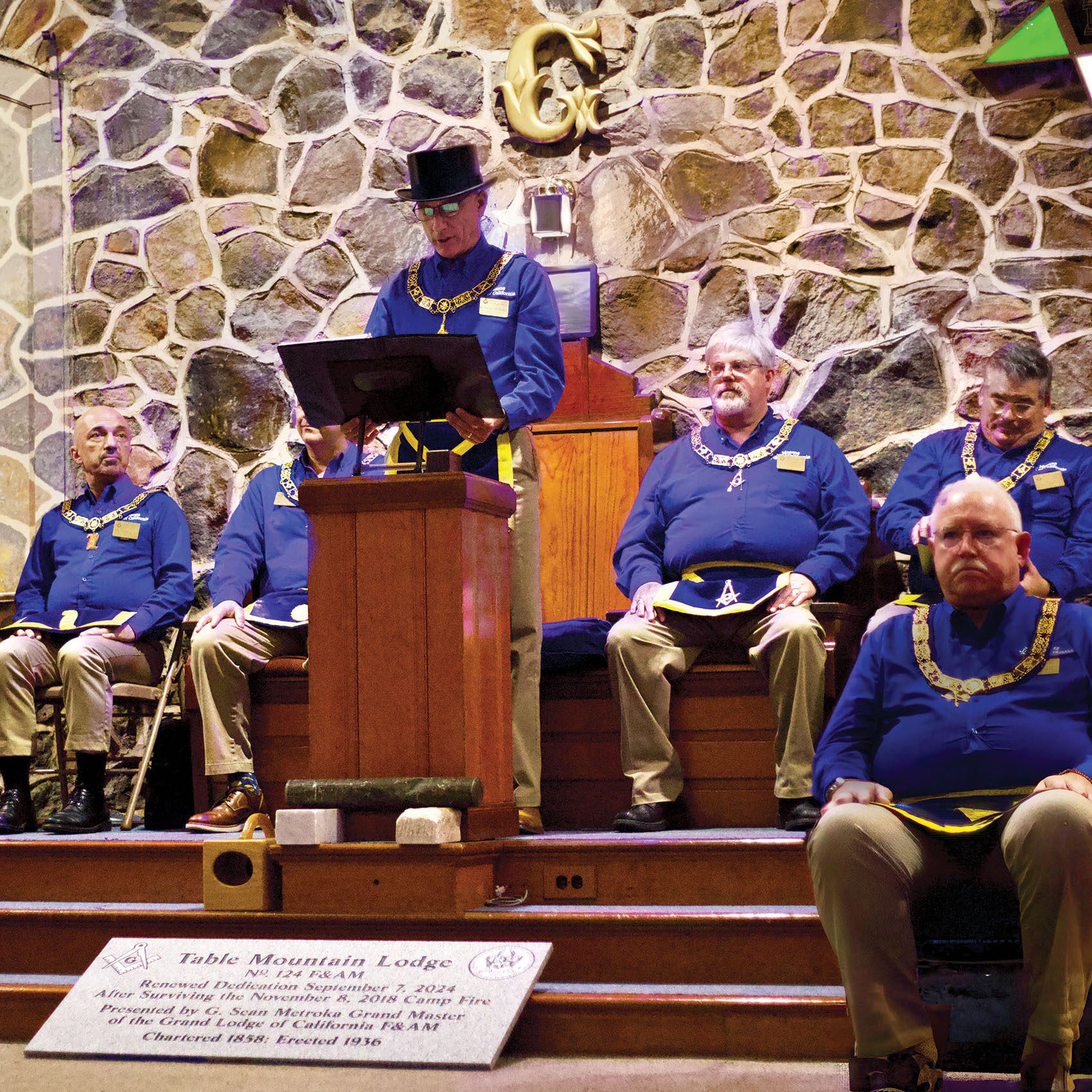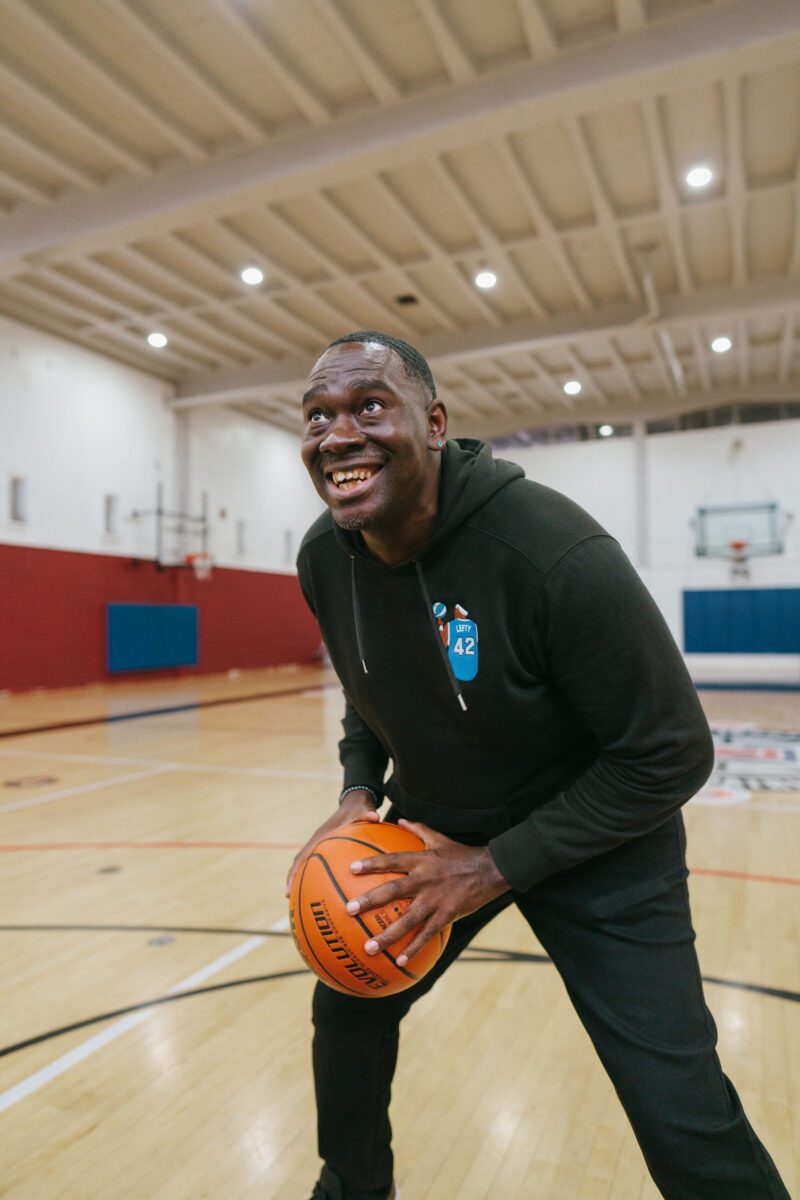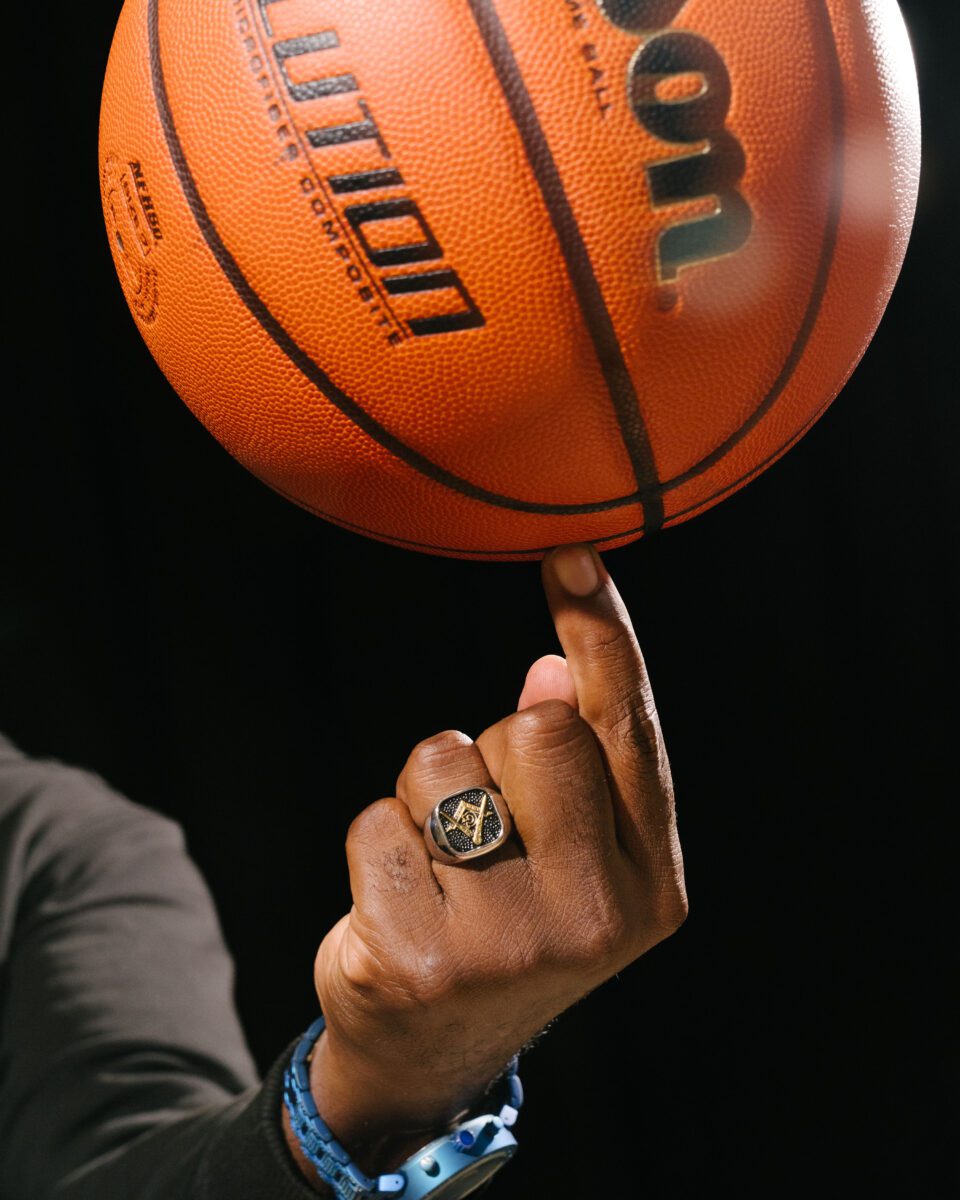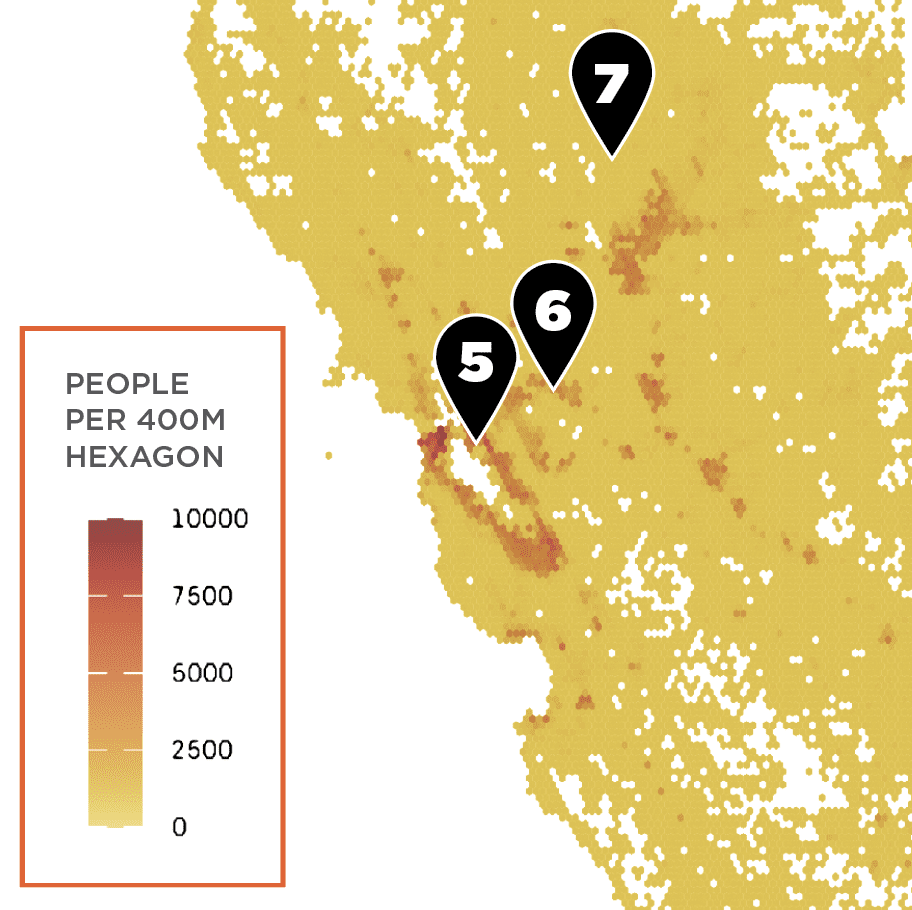
A Healing Ceremony for Paradise Masons
In Paradise, Table Mountain No. 124 is helping a community move forward.

California Freemason: You were on the world-famous Harlem Globetrotters. How did that come to be?
Harold Williams: I played professional basketball for 15 years, during which I traveled to all 50 states and 36 countries. I’d just played in the NBA Summer League in Memphis and was getting ready to head back overseas when a coach from the Globetrotters reached out. He’d seen me clowning around with a basketball during my time with a previous team. He was impressed and gave me a business card. It was red, white, and blue with gold trim and had a picture of a ball being spun on a finger. I felt like I was handed a Willy Wonka ticket.
CFM: You also played for the Washington Generals—the Globetrotters’ rivals.
HW: Yes, I initially joined the Washington Generals, who always lose to the Globetrotters. They’re really the same organization, just the other side of it. Still, I was so excited by the whole thing. And then in 2007, I was “traded” to the Globetrotters. I got traded the same day Kevin Garnet and Ray Allen were traded to the Boston Celtics. I remember the bigger story on ESPN at the time was about my trade, which I thought was hilarious. It was like that talk show First Take and everyone was talking about this kid who just went from the Generals to the Globetrotters.
CFM: Did you enjoy your time as a Globetrotter?
HW: Yes, very much. Traveling a lot, you meet so many people along the way and learn to be more empathetic and culturally sensitive. There’s so much to see and understand. Your perspective just grows. As Globetrotters, we also did a lot of charitable work, working with various children’s hospitals and nonprofits. Coming from poverty, basketball was my therapy, and to travel the world to play and make people smile—on top of meeting so many interesting people—I truly appreciate that opportunity. Being a Globetrotter is very similar to being a Mason. You’re an ambassador of goodwill and community, and that’s something you never take off.
CFM: How do you spend your time these days?
HW: Besides being the manager of my children, who are working actors, I’m also an executive producer on the show Uninterrupted: The Real Stories of Basketball. Outside of that, my wife and I founded the Dare2Dream Foundation, a nonprofit sports and character-development organization. We’re fortunate to have partnerships with several NBA teams. I grew up poor and had to work hard for everything I earned, so a lot of the work we do is tied to my past. We help children go to school through scholarships and change their environment for the better.

CFM: Would you say that work connects to your experience as a Mason?
HW: Definitely. As Masons, we’re meant to care about being better men—better people—and to make the world better. I just want to be that light for others. Especially with my kids, I talk about having the right values: faith, family, community, treating others the way they want to be treated, and believing in yourself and your dreams. When I first learned about Masonry, my uncle, who was a member, told me, “You know you’re already a Mason, right? You’ve always been a Mason.” At first, I didn’t know what he meant by that. But today I’m proud to say I do my best to embody what a true Mason is about.
Photo by
Mathew Reamer

In Paradise, Table Mountain No. 124 is helping a community move forward.

Grand Lodge’s New Lodge Development team gives a sneak preview of the areas they’re targeting for growth.

The new documentary Join or Die revisits a seminal text of contemporary social theory—and makes a powerful case for connection.